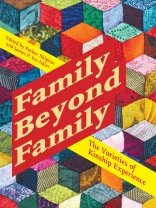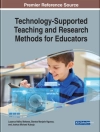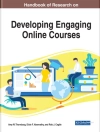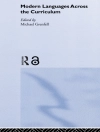Arguably all humans invent or accept forms of family beyond those that are close biological kin. These fictive forms of kinship may vary across diverse cultures and serve different purposes. This book explores a wide variety of such kinship-forming, from expedient daylong marriages to notions of deities as everlasting parents for humankind and life on earth. These range from the purely abstract to the bricks and mortar of college fraternities and sororities. Family Beyond Family observes and examines the principles and purposes of such fabricated connections.
İçerik tablosu
List of Illustrations
Acknowledgments
Introduction
Parker Shipton
Part I: Perceiving, Projecting, and Re-imagining Kinship
Chapter 1. Kinship in Shifting Perspectives (or: Brother, Can You Paradigm?)
Parker Shipton
Chapter 2. Genealogy and other Essential Fictions: The Family in Essence and Consensus
James W. Fernandez
Chapter 3. Only Connect: The Challenge of Being Born Human
John Edward Terrell
Part II: Close Family and Roles Delegated Inside and Out
Chapter 4. Fictive Fatherhood
Nicholas Townsend
Chapter 5. Sponsoring Careers: A Person-Centered View of Fictive Kinship Pragmatics
Robert A. Le Vine
Part III: Ritual Kinship and Some of Its Variants
Chapter 6. “Iron Brothers” and “Dear Customers”: Fictive Kinship and Social Change in China
Chun-Yi Sum and Jason Jiansheng Li
Chapter 7. Masquerading Rites of Passage: Fictive Marriage in Iran
Shahla Haeri
Chapter 8. Patrilineality and Its Alternatives in the Islamic Middle East: Milk, Umma, Sect, and Tariqa
Charles Lindholm
Part IV: Further Forms of Familyhood
Chapter 9. Meta-Kinship: Nominal Relatives as Fact, Fiction, and Factual Fiction
Parker Shipton
Chapter 10. Mechanical Automata and Performative Kinship: Repair and Relatedness through “As If” Illusions
Ellen Schattschneider
Chapter 11. Old Worlds from Fragments: Holocaust Family Memory in the Age of Ancestral DNA
Mark Auslander
Conclusion: Coda
James P. Ito-Adler and Parker Shipton
Index
Yazar hakkında
James P. Ito-Adler has served as a member of the faculty at Florida International University and Harvard University. He is Co-Founder and President of the Cambridge Institute for Brazilian Studies, an independent nonprofit educational organization. He is a member of the Board and serves as the Executive Officer of the Association for Central Civilizations and Silk Road Studies (ACANSRS), and as General Editor of the Cambridge Institutes Press. He is the author of The Portuguese of Cambridge and Somerville (Cambridge Dept. of Community Development, 1980).












